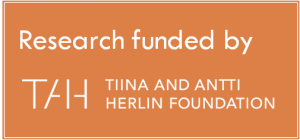What do the decision makers really think?
Sustainable development is one of the main challenges of our time. Development both in Finland and elsewhere on our planet is unsustainable in the long run, to say the least. Many urgent changes in our society would be necessary, but are we ready for it, and especially, are the people in positions of power, ready for it? And would they have an interest to take forward stronger consumption policies than what we have now?
PhD project to explore the minds of decision makers
If decision makers were given the chance to express their thoughts on the tough issues related to sustainable consumption in private, what kinds of decisions would they really support? Would they anonymously be willing to support stronger policies than what they assume their fellow decision makers are ready for?
And, if they are optimistic or pessimistic, how does it affect their opinion on what is possible? Do their attitudes and understanding of future influence their perception of the possibility of sustainable future and their willingness to use different means to ensure it?
The decision makers will discuss means to curb consumption in an anonymous delphi process
The attitudes and thoughts of decision makers will be studied through an anonymous delphi process. The decision makers are presented with a set of potential means to radically reduce household consumption of natural resources. In the delphi process the decision makers are asked to discuss and develop further these means. Their opinions and arguments will be recorded and analysed.
The project has started 2015 and will finish by 2018
The project will consists of the following stages:
- Identification of means to reduce consumption to be presented to the decision makers.
- Development of metrics to measure future consciousness of decision makers.
- Delphi process with the decision makers on potential policies to radically curb consumption.
- Analysis and reporting of the results.
Find more information about this project FROM the presentations POSTED AT THE HOME page.
The research has been funded by the Tiina and Antti Herlin Foundation as well as the Kone Foundation.
